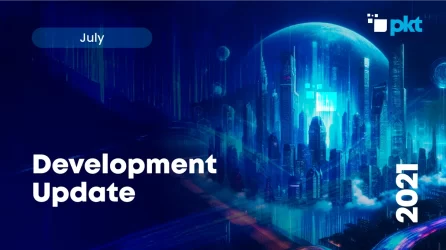Ripple is a payment protocol that processes XRP, a token developed by Ripple Labs Inc. XRP is different from bitcoin, the most popular cryptocurrency in the world, in that XRP is a centrally-issued token and bitcoin is a coin that is minted using a proof of work algorithm. Ripple is intended to service enterprise clients like banks and other payment networks for large, instantaneous transactions across the world. Ripple uses XRP Ledger, an open-source, permissionless, and decentralized blockchain technology that “polls” the servers to validate transactions. This allows the Ripple network to process high volumes of transactions at a very low cost.
Since there is no concept of mining, there is only a set number of XRP that will ever exist. This idea of scarcity coupled with the potentially lucrative opportunities for enterprise clients have contributed to Ripple’s popularity. Ripple is ranked as one of the largest cryptocurrencies in the world in terms of market capitalization.
It revolutionized cross-border payments through RippleNet which ensures instant settlement, lower exchange fees, and more efficient use of working capital. It helps in global transactions like moving money faster and cheaper. Thus, it is more useful for businesses and financial institutions that operate globally.
Additionally, RippleX is an open developer platform for money. RippleX supports the core technologies that power Ripple’s solutions and provides tools, services, and programs to developers.
You can sell Ripple for USD in exchanges that accept XRP deposits and USD withdrawals. On the other hand, you can trade Ripple for other cryptocurrencies before exchanging for USD. It offers a wide variety of exchanges available for this kind of transaction, though it involves more steps and transaction fees. Aside from exchanges, different platforms for brokers and peer-to-peer directories are also available for trading Ripple.
Selling through exchanges generally involves the registration of an account, verification of personal details, depositing XRP into the account’s wallet, selling XRP, buying USD, and finally withdrawal of USD or transferring USD directly to your bank account. The process for verification may take a few minutes to several weeks and additional fees associated with the transaction and the platform you are using must be paid.
Exchanges resemble the traditional stock market wherein they provide a digital marketplace for selling, buying, and trading cryptocurrency using fiat currency or other cryptocurrencies trading pairs. The exchange facilitates the matching of buyers and sellers wherein there is no need for contact between the two parties. While there are many exchanges available, different jurisdictions are subject to different regulations depending on location. Moreover, some exchanges are better suited to less experienced traders and small investors while others are for institutions and full-time investors.
Brokers act as financial intermediaries in buying and selling cryptocurrency. Brokers set the spot price and are also suitable for buying small amounts. Aside from that, trading on derivatives is allowed wherein the user doesn’t own the cryptocurrency, but simply bets and speculates on the price movement.
Peer-to-peer (p2p) directories are decentralized platforms for exchanges of cryptocurrency. This allows buying and selling cryptocurrency directly between buyers and sellers without intermediaries like financial institutions or the government. Moreover, the software matches the trade between the buyer and seller. Instead of processing the transaction immediately, it connects both parties and allows them to close the deal between themselves. This offers more freedom because sellers can set the price and mode of payment while buyers can choose who to transact with. Both participants have to pay a small transaction fee.
In most marketplaces, personal information like name, address, email address, phone number, and country are necessary for creating accounts to start selling and buying cryptocurrency. Aside from that, documents like ID, passport, and/or proof of residence are required for the account to be verified. Afterward, you can start transacting in cryptocurrencies.
A wallet provides digital storage for cryptocurrencies similar to a bank, wherein one can use it for processing online payments and saving, sending, and receiving cryptocurrencies. Moreover, a wallet can provide cold storage for hosted wallets that store private keys and provide offline security for the cryptocurrency. The information stored in the wallet points to the location of cryptocurrency you’re holding in a blockchain which is a public record of verified transactions.
Prices of cryptocurrency are very volatile. Price can fluctuate depending on the exchanges and demand. It is very hard for a person to influence the price of cryptocurrency due to the high number of traders and transactions. However, a trader may push the price down by selling a high volume of a cryptocurrency. On the other hand, additional fees charged by exchanges, brokers, or peer-to-peer directories vary on the platform you are using. It can be a flat fee rate per trade or a percentage of the trading volume. Aside from that, additional charges for transferring to and from the user’s local bank account may be applied.
Before trading cryptocurrency, various platforms require a deposit using a recognized payment method. It can be Paypal, Credit/Debit Card, bank transfer, stable coin or digital tokens if you are using a crypto-only platform.
Generally, technology increases the risk of access to personal information and other private activities. Though transactions and identities in a digital currency environment are secure, vulnerability to cybercriminal actions is still possible. Thus, choosing the marketplace that offers tight security is very important. On the other hand, using a recognized method is important for transferring money through different payment options to ensure the safety of the fund.
Selling cryptocurrency entirely depends on the trader’s risk assessment and tolerance. Since cryptocurrencies are known for their volatility, there is an ease of entry and exit in the market. Aside from its fluctuations, fees associated with the transaction must also be considered before deciding to sell.
In 2021, the future of Ripple is more tremulous than before. Due to the alleged violation of US securities law, SEC filed a complaint against Ripple. However, the company’s CEO swears to fight the lawsuit saying that XRP already failed fast and hard before, but it recovers quickly.
As an investor, will you believe that this is just a phase and Ripple will find its foothold and gain its momentum again?
Since the surge of Bitcoin, many alternative coins have been introduced in the market, known as AltCoins. An AltCoin is any other digital currency other than Bitcoin. A few of the most popular AltCoins are Ripple, Ethereum, Cardano, Bitcoin Cash, Litecoin, PKT Cash and Polkadot.
It is a digital revolution. People are gearing towards fast, convenient, and paperless transactions. Thus, Bitcoin and alternative coins are very attractive investments as a hedge against traditional markets.
Temporarily, you can buy and sell PKT Cash through PKT Trading Chat. It is still relatively new and yet to be listed in an exchange. Like any other cryptocurrencies, a wallet is necessary in storing, buying, and selling PKT Cash.
PKT Cash is mined using the Packetcrypt proof of work. Packetcrypt is an algorithm whereby miners perform data encryption and bandwidth-hard mining called Announcement mining. In announcement mining, anybody can prove that he/she did some work.Block mining is the second stage where miners validate the chain and get payouts.
Sources:
https://btcdirect.eu/en-gb/how-to-sell-ripple?
https://www.entrepreneur.com/article/359292
https://www.investopedia.com/tech/whats-difference-between-bitcoin-and-ripple/
Go back to Blog →
Updates
The July 2021 development update coincides with numerous milestones, including the PKT blockchain crossing the 1 millionth block, the completion of the 7th decimation, and milestone achievements for the PKT…

Updates
The PKT Town Hall Newsletter – Issue #7 On May 25th, 2023 the PKT Cash community hosted a town hall event to discuss the current updates in the ecosystem. Speakers…